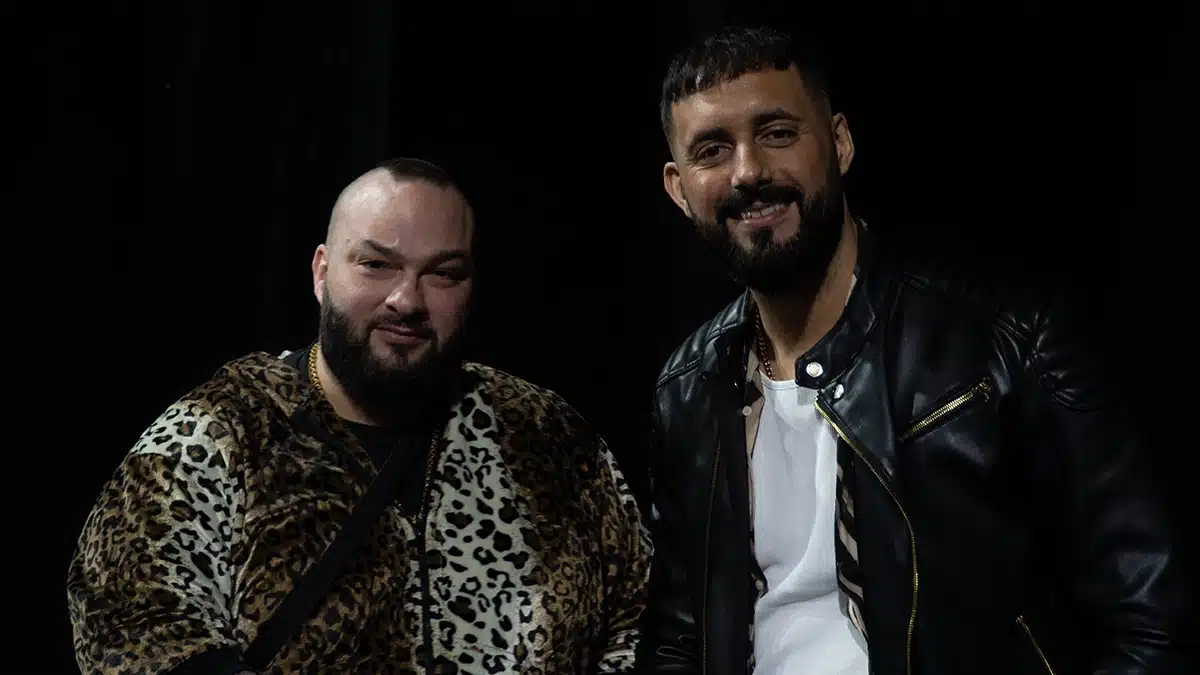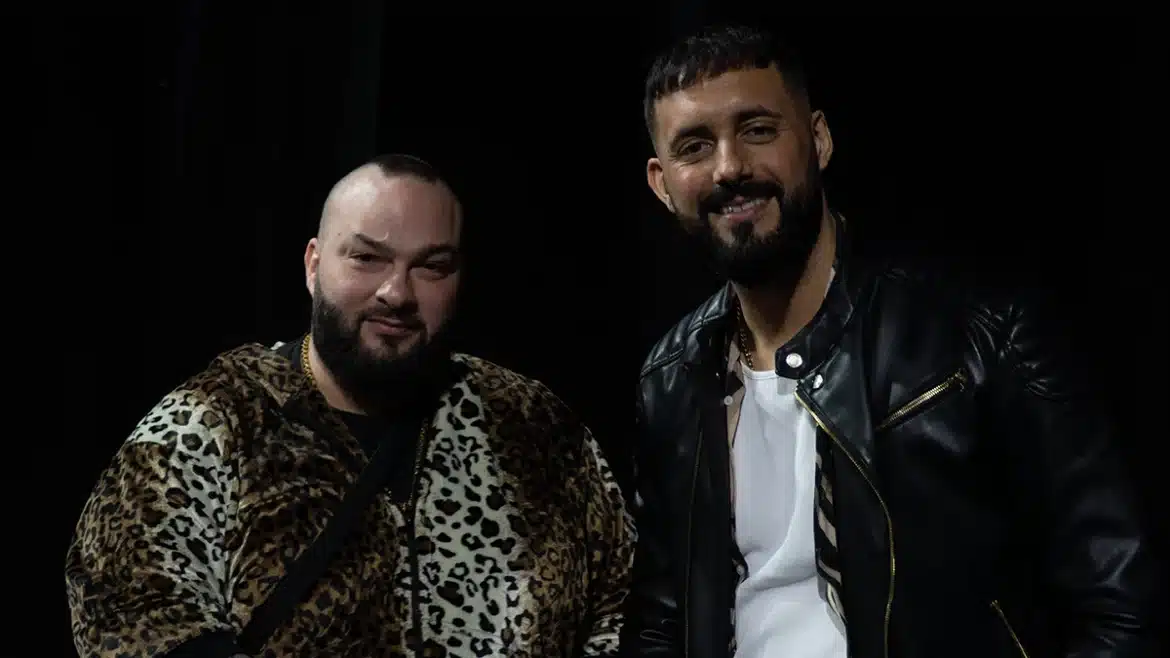Listeners:
Top listeners:
-
 play_arrow
play_arrow
107 Meridian FM Live local, love local!
-
 play_arrow
play_arrow
Essential Radio Essential Radio from Ayrshire College is a 24/7 music-led radio station
-
 play_arrow
play_arrow
G-Town Radio G-Town Radio: Your Town Your Radio station
-
 play_arrow
play_arrow
Radio Kirdford Radio Kirdford - Kirdford's Number 1 for Greatest Hits Online!
-
 play_arrow
play_arrow
Shire Radio The Sound of Lanarkshire
-
 play_arrow
play_arrow
Sanctity of Sound Sanctity of Sound
Medina Cancels Eurovision Participation in Protest Against Israel’s Involvement
today10/04/2024 195


Discover the challenges faced by Eurovision and the future of the competition. Understand the power of art and music in addressing social issues and promoting change.
Medina Cancels Participation During Eurovision in Protest Against Israel
In a surprising turn of events, the popular duo Medina has decided to cancel their participation in the Eurovision competition. The reason behind this decision is Israel’s involvement in the competition, as reported by Sydsvenskan.
Medina, who secured the second position in this year’s Melodifestivalen, was scheduled to perform during the Eurovision week in Malmö. However, Ali Jammali and Sami Rekik, the members of Medina, have chosen to withdraw their concert in the Eurovision village.
According to Sydsvenskan, the primary motive behind this abrupt cancellation is Israel’s participation in the competition, specifically due to the ongoing war in Gaza. Karin Karlsson, Malmö city’s project manager for Eurovision, has confirmed this information to the newspaper.
A Stand Against Israel’s Participation
Medina’s decision to cancel their Eurovision performance sends a strong message of protest against Israel’s involvement in the competition. This move reflects the artists’ stance on the current situation in Gaza and their refusal to support a country that they believe is responsible for the ongoing conflict.
By withdrawing from the Eurovision event, Medina aims to raise awareness about the war in Gaza and the humanitarian crisis that has unfolded as a result. Their action serves as a reminder that music and art can be powerful tools for expressing political opinions and advocating for change.
The Impact on Eurovision and Malmö
The cancellation of Medina’s performance undoubtedly has an impact on both the Eurovision competition and the city of Malmö. Eurovision, known for its diverse range of participants and performances, now faces the absence of a notable act.
Malmö, the host city for this year’s Eurovision, had been preparing for the event with great enthusiasm. The sudden withdrawal of Medina’s concert in the Eurovision village may disappoint fans who were eagerly looking forward to their performance.
However, it is important to acknowledge that Medina’s decision is driven by their strong beliefs and the desire to stand in solidarity with the people affected by the conflict in Gaza. Their action serves as a reminder that art and entertainment are not separate from the real-world issues that affect millions of lives.
A Call for Dialogue and Understanding
While Medina’s cancellation may spark controversy and debate, it also presents an opportunity for dialogue and understanding. The Eurovision competition has always been a platform for cultural exchange and unity, bringing together artists from various countries and backgrounds.
Medina’s protest against Israel’s participation invites a discussion about the role of politics in music and the responsibility of artists to address social issues. It encourages us to reflect on the power of art to shed light on conflicts and inspire change.
It is essential to approach this situation with open minds and engage in respectful conversations that allow for different perspectives to be heard. By doing so, we can foster a greater understanding of the complexities surrounding the Israeli-Palestinian conflict and work towards a peaceful resolution.
The Future of Eurovision
Medina’s decision to cancel their Eurovision performance raises questions about the future of the competition and its ability to remain apolitical. The incident highlights the challenges faced by organisers in maintaining a balance between entertainment and the geopolitical realities of the world.
As Eurovision moves forward, it is crucial for the organisers to address these concerns and find ways to ensure that the competition continues to be a platform for celebration, diversity, and unity. This may involve implementing guidelines or policies that define the boundaries between art and politics, allowing artists to express their opinions while maintaining the spirit of the event.
Ultimately, Medina’s withdrawal from Eurovision serves as a reminder that artists have the power to use their platforms for political activism and to draw attention to critical issues. It is a testament to the importance of freedom of expression and the role that music can play in shaping public discourse.
As the Eurovision competition unfolds, it is essential to appreciate the diversity of opinions and perspectives that artists bring to the stage. By embracing this diversity, we can foster a more inclusive and meaningful dialogue that goes beyond the boundaries of a music competition.
Photo Lajnan, CC BY-SA 4.0, via Wikimedia Commons
Written by: Jungle Telegraph
Similar posts
Upcoming radio shows

LGBTQ Music Chart radio show – 107 Meridian FM
17:00 - 18:00

LGBTQ Music Chart radio show – Essential Radio
18:00 - 19:00

LGBTQ Music Chart radio show – G-Town Radio
19:00 - 20:00

LGBTQ Music Chart – South Devon Sound
21:00 - 22:00

LGBTQ Music Chart radio show – Shire Radio
23:00 - 00:00
Latest LGBTQ Music News

«Outed on Friday! – Week 30 – 2024: New Music, Voting, Artists, and More!»

Dirty Pop: The Boy Band Scam That Shook the Music Industry

Catch Up on the LGBTQ Music Chart Radio Show – Week 29 2024

Pandora Boxx’s New Album «Boxx»: A Journey of Personal and Musical Growth

The LGBTQ Music Chart – Week 29 – 2024 – The sound of the LGBTQ community!
Outed on Friday!
Categories
Spotify
Apple Music
Copyright © 2018 - 2024 LGBTQ Music Chart - All Rights Reserved.







